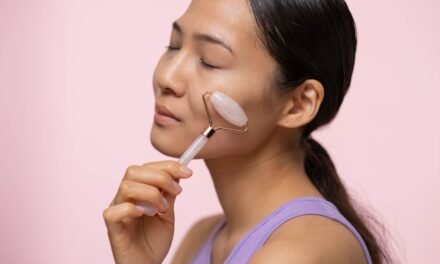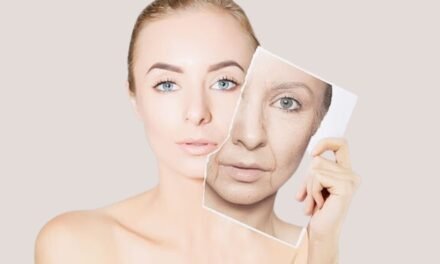Fountain of Youth , the Transformative Benefits of Hyaluronic Acid.
- Introduction to Hyaluronic Acid
- What is Hyaluronic Acid?
- How Does Hyaluronic Acid Work?
- Retention of Moisture
- Collagen Production
- Benefits of Hyaluronic Acid for Skin Health
- Hydration and Plumpness
- Wrinkle Reduction
- Wound Healing
- Benefits of Hyaluronic Acid for Joint Health
- Lubrication of Joints
- Alleviation of Joint Pain
- Hyaluronic Acid in Eye Health
- Eye Lubrication
- Treatment for Dry Eyes
- Hyaluronic Acid in Wound Healing
- Accelerating Healing Process
- Reducing Scarring
- Hyaluronic Acid in Dental Health
- Gum Health
- Oral Hygiene
- Risks and Side Effects
- Allergic Reactions
- Interactions with Medications
- How to Incorporate Hyaluronic Acid into Your Routine
- Topical Products
- Supplements
- Conclusion
Benefits of Hyaluronic Acid
In a world where skincare ingredients come and go, there’s one that has stood the test of time and continues to reign supreme: hyaluronic acid. From skincare to joint health, this powerful molecule offers a plethora of benefits that make it a staple in beauty routines and beyond.
Introduction to Hyaluronic Acid
Hyaluronic acid is a naturally occurring substance in the human body, found in connective tissues, skin, and eyes. Its main function is to retain moisture, keeping tissues well lubricated and hydrated.
What is Hyaluronic Acid?
Hyaluronic acid, often abbreviated as HA, is a glycosaminoglycan—a type of molecule composed partly of sugars. Despite its name, hyaluronic acid is not harsh or stripping; in fact, it’s incredibly gentle and suitable for all skin types.
How Does Hyaluronic Acid Work?
Retention of Moisture
One of the primary functions of hyaluronic acid is its ability to hold moisture. It can attract and retain up to 1000 times its weight in water, making it an exceptional hydrator for the skin.
Collagen Production
Hyaluronic acid also plays a crucial role in collagen synthesis. Collagen is a protein that provides structure and elasticity to the skin, and hyaluronic acid helps maintain its integrity by promoting collagen production.
Benefits of Hyaluronic Acid for Skin Health
Hydration and Plumpness
By attracting and retaining moisture, hyaluronic acid keeps the skin well-hydrated, resulting in a plump and youthful appearance. It helps smooth out fine lines and wrinkles, giving the skin a more supple texture.
Wrinkle Reduction
Regular use of hyaluronic acid can diminish the appearance of wrinkles and fine lines, thanks to its hydrating properties. It fills in the gaps in the skin’s structure, making wrinkles less noticeable and preventing new ones from forming.
Wound Healing
Hyaluronic acid accelerates the wound healing process by promoting tissue regeneration and reducing inflammation. It creates a moist environment that facilitates cell migration, leading to faster recovery from injuries and wounds.
Benefits of Hyaluronic Acid for Joint Health
Lubrication of Joints
In addition to its skincare benefits, hyaluronic acid is crucial for joint health. It acts as a lubricant and shock absorber in the synovial fluid, cushioning the joints and allowing for smooth movement.
Alleviation of Joint Pain
For individuals suffering from joint pain or arthritis, hyaluronic acid injections can provide relief by supplementing the natural lubrication of the joints. This minimally invasive treatment can improve mobility and reduce discomfort.
Hyaluronic Acid in Eye Health
Eye Lubrication
Dry eyes can be a nuisance, but hyaluronic acid eye drops offer effective relief by moisturising and lubricating the ocular surface. They provide long-lasting hydration without causing irritation or blurring vision.
Treatment for Dry Eyes
Hyaluronic acid is also used in eye surgeries and procedures to promote healing and prevent dryness. Its biocompatibility and ability to retain moisture make it an ideal component of eye drops and artificial tears.
Hyaluronic Acid in Wound Healing
Accelerating Healing Process
Whether it’s a minor cut or a surgical incision, hyaluronic acid can expedite the healing process by stimulating cell proliferation and migration. It creates a conducive environment for tissue repair, reducing the risk of infection and scarring.
Reducing Scarring
By promoting collagen synthesis and tissue regeneration, hyaluronic acid helps minimise the formation of scars. It improves the overall appearance of the skin by smoothing out uneven textures and reducing discoloration.
Hyaluronic Acid in Dental Health
Gum Health
Hyaluronic acid-based mouthwashes and gels are beneficial for maintaining gum health and preventing periodontal diseases. They promote tissue regeneration and reduce inflammation, keeping the gums strong and resilient.
Oral Hygiene
In addition to its role in gum health, hyaluronic acid contributes to overall oral hygiene by moisturising the oral mucosa and preventing dryness. It enhances saliva production, which helps neutralise acids and protect against cavities.
Risks and Side Effects
While hyaluronic acid is generally safe for most people, some individuals may experience allergic reactions or adverse effects. It’s essential to perform a patch test before using new skincare products containing hyaluronic acid and consult a healthcare professional if you have any concerns.
How to Incorporate Hyaluronic Acid into Your Routine
Topical Products
Hyaluronic acid is a common ingredient in moisturisers, serums, and facial masks. Look for products with a high concentration of hyaluronic acid for maximum hydration and anti-aging benefits.
Supplements
In addition to topical treatments, hyaluronic acid supplements are available in oral form. These supplements can support joint health and overall well-being by replenishing the body’s natural stores of hyaluronic acid.
Summary
Hyaluronic acid is a versatile ingredient with numerous benefits for skin, joint, eye, and dental health. Whether you’re looking to improve your complexion, alleviate joint pain, or enhance oral hygiene, hyaluronic acid offers a safe and effective solution. By incorporating hyaluronic acid into your daily routine, you can enjoy hydrated, youthful-looking skin and improved overall wellness.
Unique FAQs
- Can hyaluronic acid be used with other skincare ingredients?
- Yes, hyaluronic acid is compatible with most skincare ingredients and can be safely incorporated into your routine.
- How long does it take to see results from hyaluronic acid?
- Results may vary depending on the individual and the product used, but many people notice improvements in skin hydration and texture within a few weeks of regular use.
- Are there any contraindications for hyaluronic acid supplements?
- Individuals with known allergies to hyaluronic acid or any of its derivatives should avoid supplementation. Additionally, pregnant or nursing individuals should consult with their healthcare provider before taking hyaluronic acid supplements.
- Can hyaluronic acid injections replace surgical procedures for joint issues?
- While hyaluronic acid injections can provide temporary relief for joint pain and inflammation, they may not be a substitute for surgical intervention in severe cases. It’s essential to discuss treatment options with a qualified healthcare professional.
- Is hyaluronic acid safe for all skin types?
- Yes, hyaluronic acid is generally well-tolerated by all skin types, including sensitive and acne-prone skin. However, it’s always a good idea to patch-test new skincare products to ensure compatibility.










